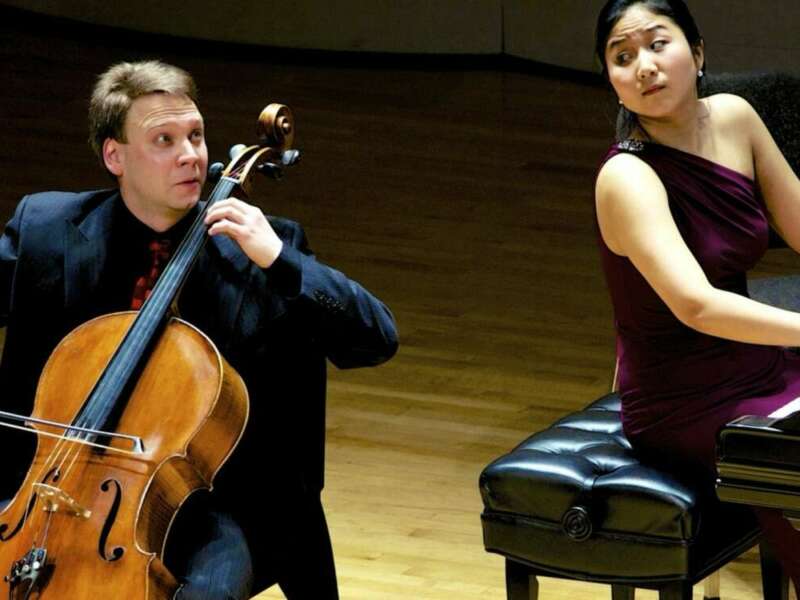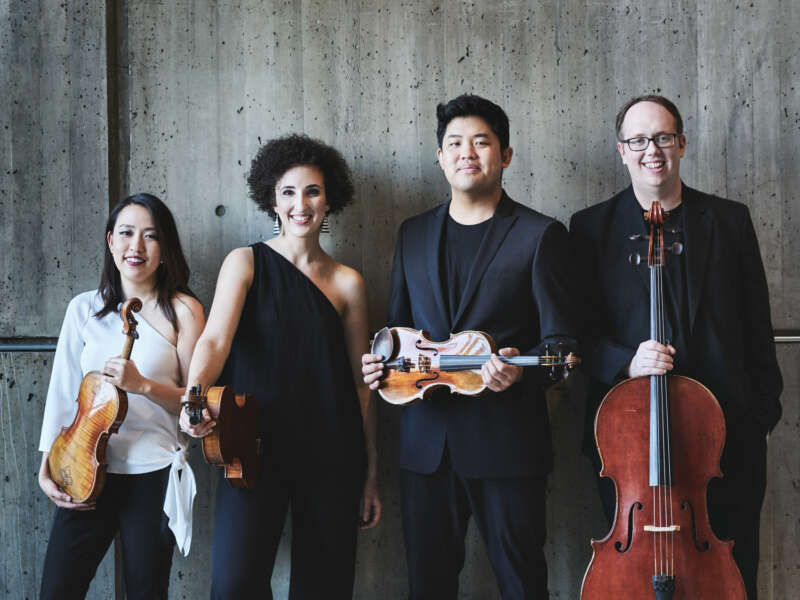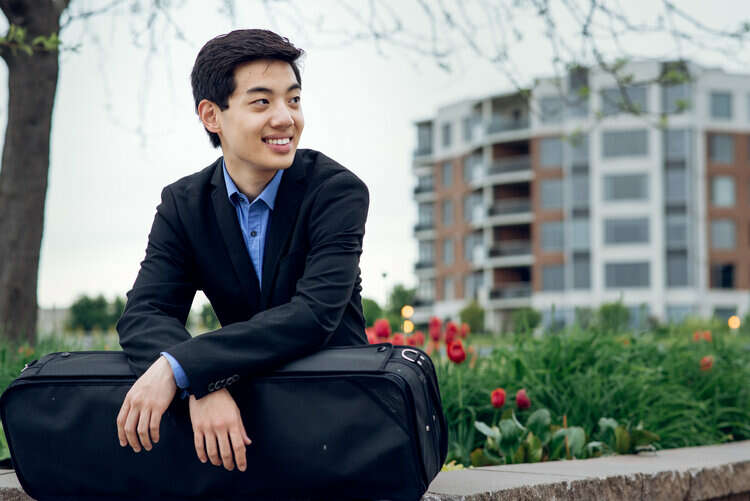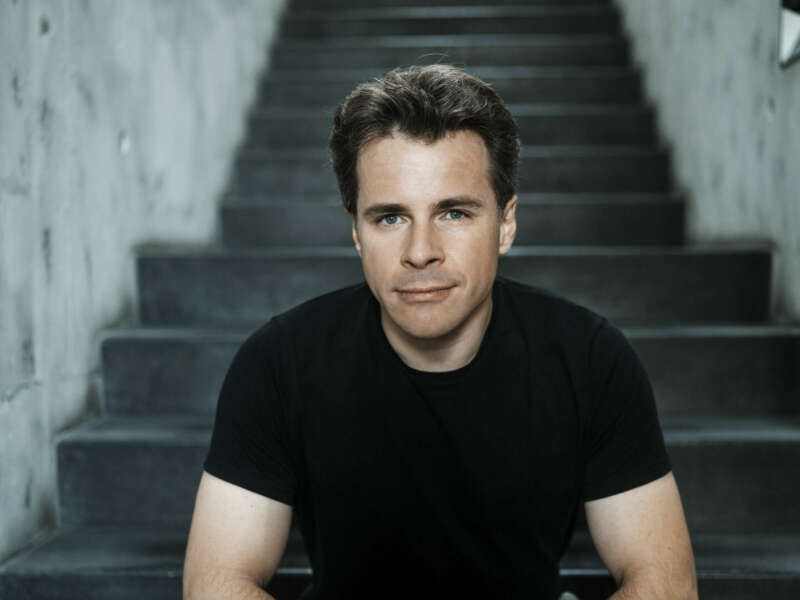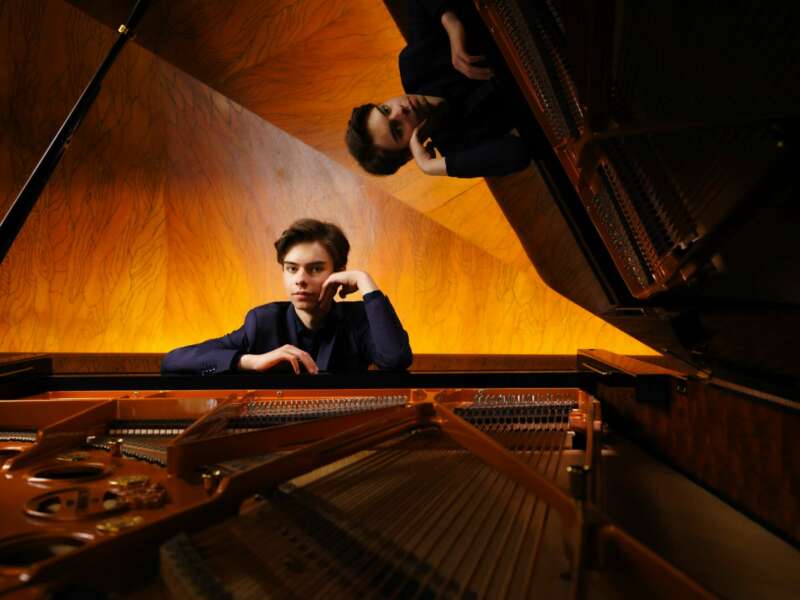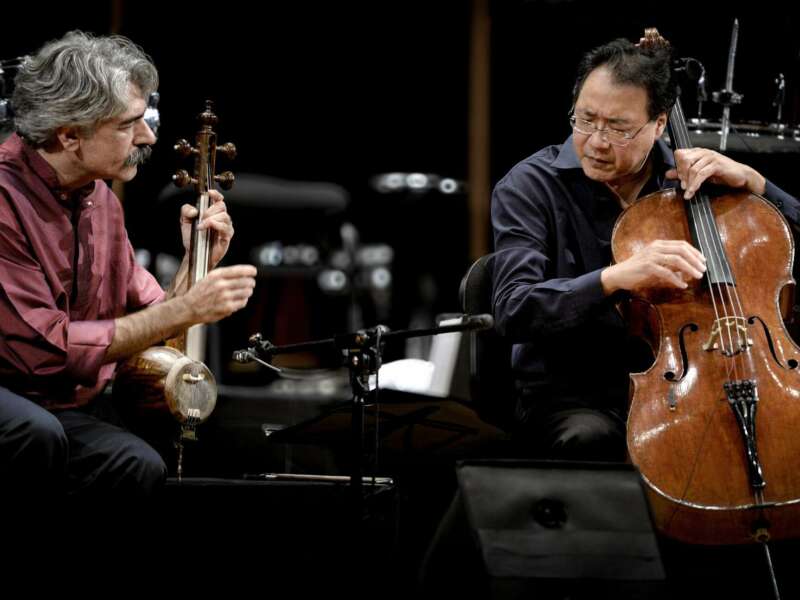VC INTERVIEW | Bowdoin International Music Festival Artistic Directors, David and Phillip Ying
The festival’s Summer Music Institute is in session from June 25 – August 6, 2022, with concerts streamed here on The Violin Channel
The Violin Channel had the pleasure of speaking to Bowdoin International Music Festival's Artistic Directors David Ying and Phillip Ying to learn more about this year's edition.
Tell us about the Bowdoin International Music Festival. When and how was it founded in this beautiful location?
The Bowdoin International Music Festival was founded in 1964 by Lewis Kaplan and Robert Beckwith as a summer concert series at Bowdoin College. In the Festival’s second year, Lewis and Bob invited a small group of 19 students, launching the educational branch of the Festival which, 58 years later, serves as the root of our mission. In 1997, the Festival established itself as an independent non-profit separate from Bowdoin College, but continues a strong relationship with the college. In the intervening years, we solidified our reputation as a premier chamber music training institute, a place that celebrates both contemporary and canonical repertoire, and a welcoming community that encourages meaningful dialogue and support between musicians and audiences from midcoast Maine and beyond.
Over the years, what changed about the festival, and what remained the same?
The Festival has always attracted top talent from throughout the world, and alumni are represented in nearly all major orchestras, ensembles, and conservatories worldwide. Most professional quartets we invite to perform include at least one member who attended the Festival. In recent years, we have seen this trend take off in some amazing ways. Applications to the Festival have more than doubled in the last 6 years, and the quality of student performances has risen accordingly. Our fellowship program, which provides full scholarship to 30 students, has allowed us to recruit young professionals at the start of serious and diverse careers as performers and teachers. However, our core purpose remains the same: providing gifted young musicians from around the globe with an opportunity to study with world-class artists.
Each year, 250 students take part in this unique experience, studying with world-class teachers and musicians. What sets the Bowdoin International Music Festival apart from other summer festivals?
Like many small, intimate festivals, the Festival fosters the growth of our musicians through the study of solo and chamber music repertoire. At the same time, at 250 students per summer, we are the size or nearly the size of many orchestral-based festivals. We cultivate the same personal attention, encouragement, and nurturing as a smaller festival in a setting that can include a much broader range of diversity and collaborative and supportive relationships that characterizes a larger festival. Our blend of conservatory and music school-based faculty represents some of the most respected musicians who maintain active performing profiles along with a proven commitment to teaching and mentoring younger musicians.
What does a day at Bowdoin typically look like for students and faculty?
A hallmark of this Festival is our flexibility in meeting the individual artistic needs of each young artist. Students largely do not have pre-determined agendas for performances or day-to-day activities. Instead, we surround them with world-class faculty, inspiring peers, terrific facilities, and hundreds of opportunities to learn, rehearse, and perform.
Students take these resources and with their primary artist faculty member, create a plan to meet their personal goals for the summer. Components may include performances in the state-of-the-art Studzinski Recital Hall, community engagement performances, private lessons, chamber music rehearsals and coachings, studio classes, individual practicing, residence life activities, and of course, community meals in the award-winning Bowdoin College dining hall.
Outside of practicing and performing, what other activities are offered to your participants?
As a coastal Maine community, we are fortunate to be surrounded by incredible natural beauty. Students hike along rocky shores, swim at historic beaches, explore wildlife in expansive tide pool networks, and spot iconic lighthouses. Some of our more adventurous students participate in whale watching boat trips or day-long excursions to Monhegan Island, a once-reclusive artist community 12 miles into the Atlantic.
Can you tell us about the Charles E. Gamper Festival of Contemporary Music and why programming new music is important to your mission?
The broader mission of the Festival, outside of our focus on elevating the next generation of young artists, is to promote the vibrancy and bright future of chamber music, and this is reflected in our commitment to promoting and producing new music throughout our program and performances.
Along with instrumentalists, our Festival includes a full studio of composition students who engage with their peers in performance and study and collaboration all summer long. The Gamper Festival is a “Festival within a Festival,” where we devote a long weekend focus on the music of living composers performed by faculty and our fellowship students. In addition, new music is presented as part of nearly every ticketed concert, students often introduce audiences to new work in our community concerts, and many special events focus exclusively on contemporary works.
Two annual highlights include “Composers at the Museum,” featuring new pieces by student composers inspired by works of art hanging in the museum galleries, and the playfully named, “Guinea Pigs in Bowties,” presenting works written within 48 hours prior to the concert start time that matches performers and composers into collaborative projects by drawing names and instrumentation literally out of a hat.
The festival offers a variety of concerts, solo music, chamber music, orchestra concerts, plus community events. Can you tell us about some of the upcoming highlights and how listeners can tune in from anywhere around the world?
Next week you can travel to Brunswick (Amtrak station is less than a mile from our concert hall, and airport 30 minutes away) or tune in to our free livestream for concerts featuring the Jupiter Quartet, Festival faculty, and Zlatomir Fung performing Elgar’s cello concerto. There are also dozens of hours of free student performances, masterclasses, “meet the composer” lectures, and more. For a full calendar, visit bowdoinfestival.org. The 2022 Festival runs for one more week, but please join us for the 6-week summer 2023 season beginning in late June.
To learn more about the Bowdoin International Music Festival, click here.
july 2025
august 2025



